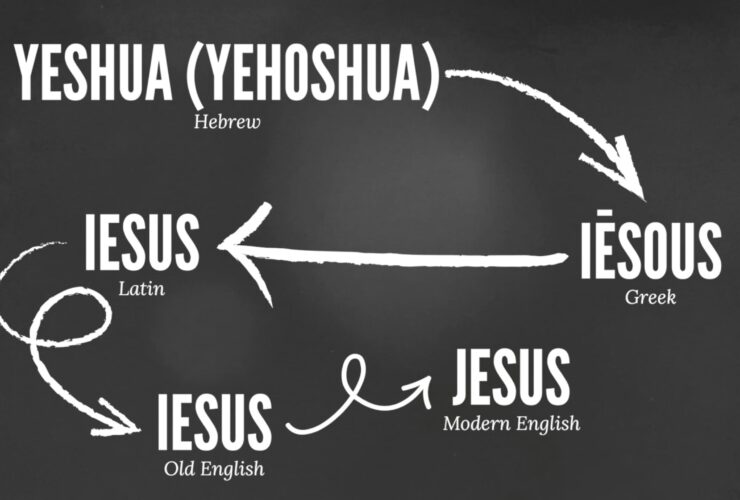Today, I’d like to take a bit of a closer look at Asa the king of Judah whose reign is recorded in 2 Chronicles 14-16. Overall, Asa was a pretty good king who followed God. He didn’t lead Judah into idolatry or apostasy, so he did better than a lot of other kings. However, the amount of space given to his reign should clue us that the author is trying to highlight a certain theme for the original audience, which remember is the returned Babylonian exiles.
In 2 Chronicles 14, Asa begins his reign in peace, and spends these years tearing down high places, idols and altars, building up fortified cities in Judah, and outfitting his military because we’re told of their shields and spears. The first ten years of Asa’s reign were marked by this spiritual and physical preparation. Then war came, we’re told that “Zerah the Cushite marched out against [Judah]….with an army of thousands upon thousands and three hundred chariots…” (v.9) Asa marches out to meet them and cries out to God for help. The Bible emphasizes that God fights for Judah, it is He who struck down the Cushites before Asa.
Afterwards, a prophet, Azariah son of Oded gives Asa a message from God. Now, there were likely many words given to Asa, he was a godly king and the prophets of God were expected to work in the kingdom. So, the fact that the author chose to include this prophecy, means that it is important to the point that the author is drawing out. This prophecy begins, “The LORD is with you when you are with him. If you seek him, he will be found by you, but if you forsake him, he will forsake you….” (v.2) It, then, describes how following God brings peace while forsaking Him brings chaos, and ends, “But as for you, be strong, and do not give up, for your work will be rewarded.” What we see next should be a bit troubling to us.
“The Lord is with you when you are with him. If you seek him, he will be found by you, but if you forsake him, he will forsake you.”
2 Chronicles 15:2
We see Asa go 150% for God. It seems like he’s thinking to himself, “oh, God is with us when we’re with him, so we’ll be the most for him that anyone ever has been or every could be!” He becomes overzealous. Asa assembles all of his people, including people who had come to him from the nation of Israel, when they had learned of his faithfulness to God.
Now a bit of a side note, here; this is very interesting because there must have been some hope that Asa would finally be the king to reunite Israel and Judah. We can see threads of this hope throughout the tales of the kings. For example, it says in 2 Chronicles 16 that Asa, though he removed the high places from Judah, was not able to do the same for Israel, which is an odd thing to say if there wasn’t a hope of him reuniting the kingdoms because Israel wasn’t technically under his kingship. We also see echoes of this in the later reigns of Jehoshaphat, Hezekiah, and Josiah.
But back to the main point here: At Asa’s assembly he makes it illegal to not seek God, punishable by death. Which was not in the Law of Moses. He goes even beyond the law in his passion. But this will come back to haunt him because he fails to follow the words of the prophecy, “do not give up.” Asa experiences about 25 years of peace, and when war finally comes knocking on his door, he decides to pay the king of Aram to break a treaty and, thus, delay warfare. It works, but Asa has had to pay for this out of the treasuries of the Temple of God. Rather than going to God for help, which might have meant fighting a war, Asa decides to take money from God, and give it to a foreign power buying Judah’s salvation. Ironically, this means that Asa was guilty of a capital crime under his own overzealous law enacted decades earlier. He had failed to seek God. Another prophet of God brings him a word, “…you have done a foolish thing, and from now on you will be at war.” (16:9) Asa, enraged, imprisons the prophet, persecutes some of his people, and becomes diseased in his feet but again refused to seek God’s help.
Asa began well but allowed himself to be controlled by his passion. First, he over-committed to God in his own way and went beyond the words of the Law, then he was over-committed to his own anger, locking up the words of God in the form of the prophet and refusing to go to God for help. Rather than indulging our own passion, we need to be careful to follow God how he has advised us. Let’s not go beyond what he has told us, let’s not be controlled by our passions, but rather practice that fruit of the spirit: Self-control.

Corie Bobechko is a daily co-host, speaker, and writer of Bible Discovery. She also hosts a YouTube channel that shows how history and archaeology prove the Bible. Her heart for seekers and skeptics has led her to seek truth and share it with others. Corie also has a Bachelor of Theology from Canada Christian College.
[1] Frisch, p.106






